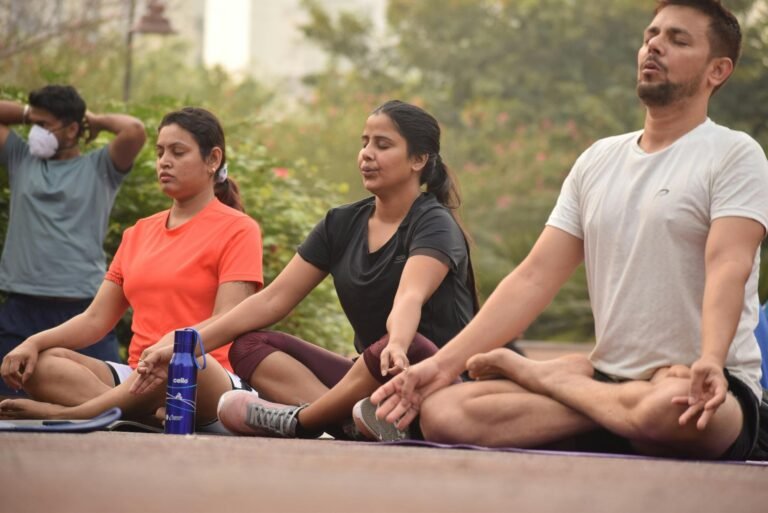Did you know that more than 48 million Americans struggle with substance abuse?
Addiction is a complex and devastating disease. It can impact every aspect of a person’s life. This includes their physical and mental health, relationships, and well-being.
For those in addiction recovery, incorporating mindfulness practices can be beneficial. Mindfulness is the train of being present in the moment without insight. It involves focusing on your ideas and environment without getting lost in them.
In this guide, we’ll discuss how to incorporate mindfulness into addiction recovery activities. Read on to learn more.
Start with Breathing Exercises
One of the easiest ways to incorporate mindfulness into your daily routine is through breathing exercises. Deep, controlled breaths can help calm the mind and body, reducing stress and anxiety.
To begin, choose a peaceful and cozy spot to sit or lay back. Shut your eyes and take slow, deep breaths, Breathing in through your nose and out through your mouth. Focus on the sensation of the air entering and leaving your body.
You can also try counting your breaths or repeating a calming mantra while doing these exercises. This can help bring focus to the present moment and ease racing thoughts.
Practice Mindful Eating
For those in addiction recovery, food can play a significant role in physical and emotional healing. Mindful eating involves paying attention to the taste, texture, and smell of your food while eating. It also involves being aware of your body’s hunger and fullness cues.
To practice mindful eating, start by taking a moment to appreciate your food before diving in. Chew slowly and pay attention to the flavors and textures as you eat. This can help reduce overeating and emotional eating, which are common triggers for relapse.
Engage in Mindful Movement
Exercise is an essential aspect of addiction recovery, but it can also be a form of mindfulness when done with intention. Engaging in activities such as yoga or walking meditation can help calm the mind and bring focus to the present moment.
During these activities, pay attention to your breath and body movements. Notice any sensations or thoughts that arise without judgment. This can help increase self-awareness and reduce stress and anxiety.
Try Guided Meditation
Guided meditation is a form of mindfulness where a trained instructor or audio recording leads you through a series of exercises. It can be an effective way to calm the mind and increase focus. This is especially true for those new to mindfulness practices.
You can find guided meditations online or attend classes at addiction recovery support groups. Make sure to choose one that aligns with your specific needs and goals. With regular practice, guided meditation can help improve mental clarity and overall well-being.
Incorporate Mindful Journaling
Journaling is a therapeutic activity that can help those in addiction recovery express their thoughts and emotions. When done mindfully, it can also increase self-awareness and promote inner reflection.
To incorporate mindfulness into journaling, focus on the present moment as you write. Notice any physical sensations, emotions, or thoughts that arise. This can help you gain insight into your recovery journey and identify triggers and patterns.
Surround Yourself with Mindful Support
Incorporating mindfulness into addiction recovery activities is easier when you have a supportive community. Find like-minded individuals who also prioritize mindfulness in their daily lives. They can offer accountability, encouragement, and motivation on your journey.
You can also seek out recovery group activities specifically focused on incorporating mindfulness practices. This can provide a safe space to share experiences and learn from others’ journeys.
Utilize Nature for Mindfulness
Spending time in nature can be a powerful way to practice mindfulness. Observe the sights, sounds, and smells around you while walking in a park or hiking in the woods. Nature has a calming effect that can help reduce stress and promote peace and well-being.
You can also incorporate mindfulness into outdoor activities, such as gardening or birdwatching. These activities allow you to focus on the present moment and connect with nature in a meaningful way.
Explore Creative Arts Mindfully
Engaging in creative activities such as drawing, painting, or music can be another form of mindfulness. Focus on the process rather than the outcome. Allow yourself to become fully absorbed in the creative experience.
This can be a therapeutic way to express and process emotions. It can also help reduce stress and promote relaxation.
Create a Mindful Space
Having a designated space for mindfulness can enhance your practice. Choose a quiet, comfortable area free from distractions. This space can be used for meditation, yoga, or simply sitting quietly and observing your thoughts.
Make this space your own by adding elements that bring you peace and comfort. This can include candles, plants, or meaningful objects.
Practice Self-Compassion
One of the core aspects of mindfulness is treating yourself with kindness and compassion. Acknowledge that addiction recovery is a challenging journey and it’s normal to have setbacks.
Practice self-compassion by forgiving yourself for any mistakes and focusing on your progress. This can help build self-esteem and promote a positive mindset for recovery.
Cultivate Gratitude
Mindfulness and gratitude often go hand in hand. Take a few moments each day to reflect on what you are grateful for. This can shift your focus from negative thoughts to positive ones.
You can also keep a gratitude journal and write down things you are thankful for daily. This practice can help promote a sense of contentment and well-being.
Seek Professional Guidance
For those new to mindfulness, seeking guidance from an alcohol and drug rehab professional can be beneficial. Therapists and counselors specializing in addiction recovery. They can provide personalized strategies and support.
If you live in California, consider checking these halfway houses. They can help you integrate mindfulness practices into your recovery plan effectively.
Effective Mindfulness Strategies for Addiction Recovery Activities
Incorporating mindfulness into addiction recovery activities can be a powerful tool for maintaining sobriety. Remember to start small and be patient with yourself. With regular practice, you can support your journey towards long-term recovery.
Remember to seek support from professionals and like-minded individuals along the way. With their guidance and encouragement, you can create a fulfilling life in recovery. Your recovery is worth the effort – stay mindful, stay strong!
Did you find this blog post helpful? If so, feel free to explore more of our blog!





